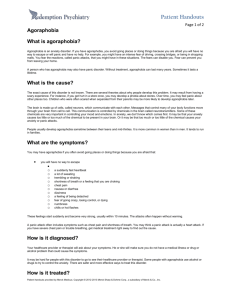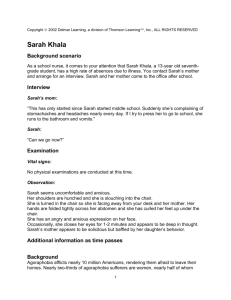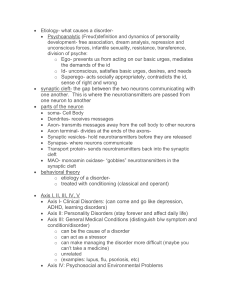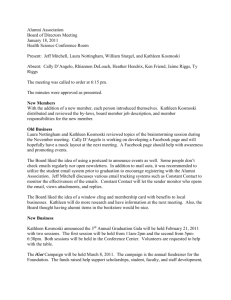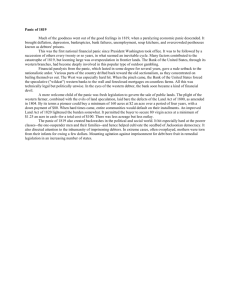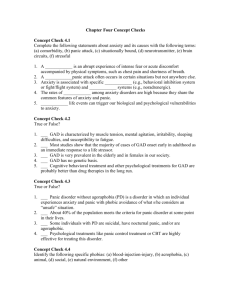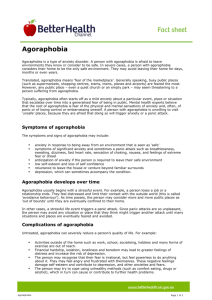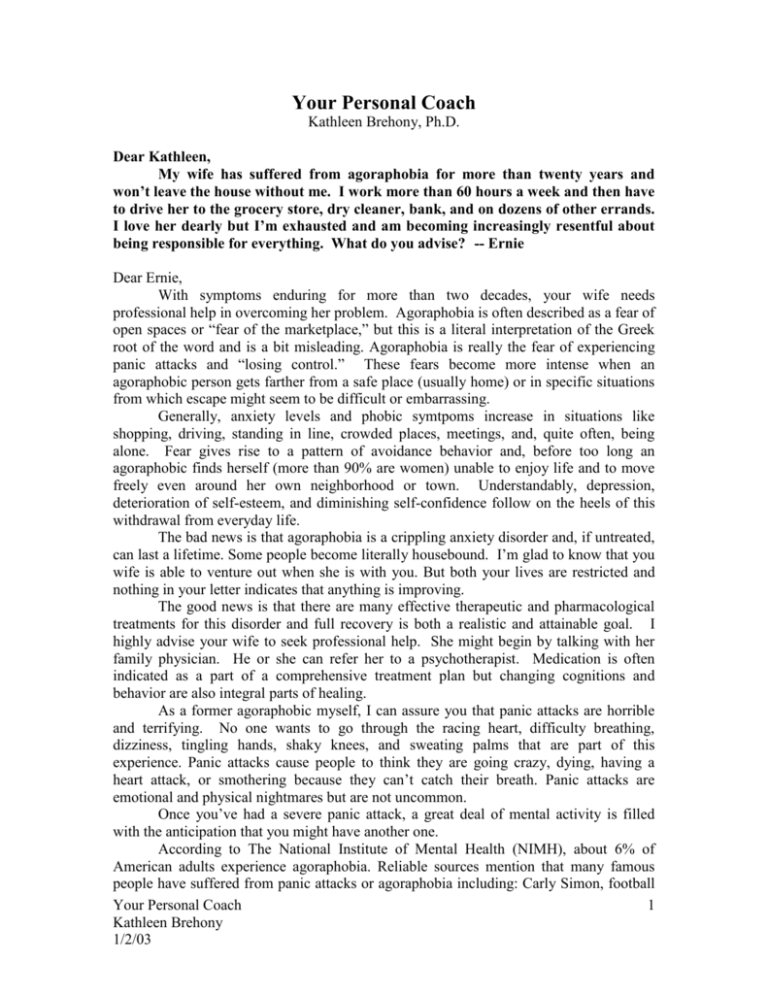
Your Personal Coach
Kathleen Brehony, Ph.D.
Dear Kathleen,
My wife has suffered from agoraphobia for more than twenty years and
won’t leave the house without me. I work more than 60 hours a week and then have
to drive her to the grocery store, dry cleaner, bank, and on dozens of other errands.
I love her dearly but I’m exhausted and am becoming increasingly resentful about
being responsible for everything. What do you advise? -- Ernie
Dear Ernie,
With symptoms enduring for more than two decades, your wife needs
professional help in overcoming her problem. Agoraphobia is often described as a fear of
open spaces or “fear of the marketplace,” but this is a literal interpretation of the Greek
root of the word and is a bit misleading. Agoraphobia is really the fear of experiencing
panic attacks and “losing control.” These fears become more intense when an
agoraphobic person gets farther from a safe place (usually home) or in specific situations
from which escape might seem to be difficult or embarrassing.
Generally, anxiety levels and phobic symtpoms increase in situations like
shopping, driving, standing in line, crowded places, meetings, and, quite often, being
alone. Fear gives rise to a pattern of avoidance behavior and, before too long an
agoraphobic finds herself (more than 90% are women) unable to enjoy life and to move
freely even around her own neighborhood or town. Understandably, depression,
deterioration of self-esteem, and diminishing self-confidence follow on the heels of this
withdrawal from everyday life.
The bad news is that agoraphobia is a crippling anxiety disorder and, if untreated,
can last a lifetime. Some people become literally housebound. I’m glad to know that you
wife is able to venture out when she is with you. But both your lives are restricted and
nothing in your letter indicates that anything is improving.
The good news is that there are many effective therapeutic and pharmacological
treatments for this disorder and full recovery is both a realistic and attainable goal. I
highly advise your wife to seek professional help. She might begin by talking with her
family physician. He or she can refer her to a psychotherapist. Medication is often
indicated as a part of a comprehensive treatment plan but changing cognitions and
behavior are also integral parts of healing.
As a former agoraphobic myself, I can assure you that panic attacks are horrible
and terrifying. No one wants to go through the racing heart, difficulty breathing,
dizziness, tingling hands, shaky knees, and sweating palms that are part of this
experience. Panic attacks cause people to think they are going crazy, dying, having a
heart attack, or smothering because they can’t catch their breath. Panic attacks are
emotional and physical nightmares but are not uncommon.
Once you’ve had a severe panic attack, a great deal of mental activity is filled
with the anticipation that you might have another one.
According to The National Institute of Mental Health (NIMH), about 6% of
American adults experience agoraphobia. Reliable sources mention that many famous
people have suffered from panic attacks or agoraphobia including: Carly Simon, football
Your Personal Coach
1
Kathleen Brehony
1/2/03
player Earl Campbell (Heisman Trophy winner), Aretha Franklin, actors Nicolas Cage
and Laurence Olivier, Barbra Streisand, writer Isaac Asimov, and, of course, poet Emily
Dickinson.
It is quite possible for your wife to learn to overcome panic attacks and take back
her life. Ernie, I know you love your wife but, honestly, your behavior is “over-helping”
and serves to enable her symptoms. I suggest you have a conversation about how her
anxiety disorder is affecting your life. Tell her that you are feeling overwhelmed with
responsibility and that it makes you sad to see her miss so many opportunities to live
fully and joyfully.
The two of you can start by learning more about agoraphobia. Go to a bookstore
or library. Surf the Internet – just type in “agoraphobia” in any search engine. Next,
make an appointment with your family physician and then a psychotherapist who
understands this anxiety disorder. It’s past time to make changes that will transform both
your lives.
Send your personal coaching questions to kathleen@fullpotentialliving.com or call 4734004. Kathleen is a personal and executive coach, clinical psychologist, and writer. (©2002
Kathleen Brehony. All Rights Reserved.) www.fullpotentialliving.com
Your Personal Coach
Kathleen Brehony
1/2/03
2

